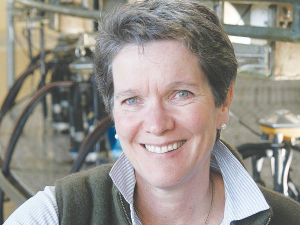Nicola Shadbolt elected as LIC director
Academic and former Fonterra director Nicola Shadbolt has been elected as LIC director.
 Massey University academic Nicola Shadbolt says the M.bovis review is about learning from the past and helping us to be stronger in the future.
Massey University academic Nicola Shadbolt says the M.bovis review is about learning from the past and helping us to be stronger in the future.
The chair of a new committee set up to review the handling of Mycoplasma bovis outbreak says it isn’t a witch-hunt.
Massey University academic Nicola Shadbolt says the review is about learning from the past and helping us to be stronger for the future.
She says it’s about finding out what happened and seeing what might need to be put in place if there a biosecurity outbreak of this nature in the future.
Shadbolt, a professor of farm and agribusiness, served as a Fonterra director for nine years and is currently chair of Plant and Food Research.
Other members are Dr Roger Paskin who until recently was the chief veterinary officer for the Department of Primary Industries and Regions, South Australia where he had technical oversight of all animal disease control, surveillance, traceability and health certification programs, Caroline Saunders, who is professor of trade and environmental economics at Lincoln University and Tony Cleland a well-known South Island dairy farmer and company director who is also chairman of the rural insurance company FMG.
The review committee was appointed by the M. bovis programme partners, MPI, DairyNZ and Beef+Lamb NZ.
DairyNZ chair Jim van der Poel says it was best practice to carry out a review of an eradication programme of this scale and was also a commitment made to farmers at the start of the programme. He says eradicating M. bovis is hard work but with the whole sector working together, we have made really good progress.
“It’s important we capture what we’ve learned and utilise it for anything we might face in the future,” he says.
Beef+Lamb NZ chair Andrew Morrison says his organisation supported the review. He says there’s been a lot of good work by farmers and people involved and we have worked hard to make improvements.
“We have a philosophy of continuous improvement and this review is the next step in our journey,” he says.
Shadbolt says the committee has a list of key people they want to talk to but are also keen to hear from anyone who has information which could aid her team. She details on how they will engage with the wider farming community are still being worked through.
“Generally we want to talk to a broad suite of people,” she says.
The review is expected to be completed about the middle of the year.
The World Wide Sires National All Day Breeds Best Youth Camp Best All Rounder plaudit has become family affair, with 2026 Paramount Cup winner Holly Williams following in her sister Zara's footsteps.
DairyNZ is giving New Zealand farmers a unique opportunity to gain hands-on governance and leadership experience within the dairy sector.
Herd improvement company LIC has posted a 5.2% lift in half-year revenue, thanks to increasing demand for genetics.
According to the latest Fresh Produce Trend Report from United Fresh, 2026 will be a year where fruit and vegetables are shaped by cost pressures, rapid digital adoption, and a renewed focus on wellbeing at home.
The Roar is a highlight of the game hunting calendar in New Zealand, with thousands of hunters set to head for the hills to hunt male stags during March and April.
OPINION: The past few weeks have been tough on farms across the North Island: floods and storms have caused damage and disruption to families and businesses.
OPINION: Fonterra may be on the verge of selling its consumer business in New Zealand, but the co-operative is not…
OPINION: What does the birth rate in China have to do with stock trading? Just ask a2 Milk Company.